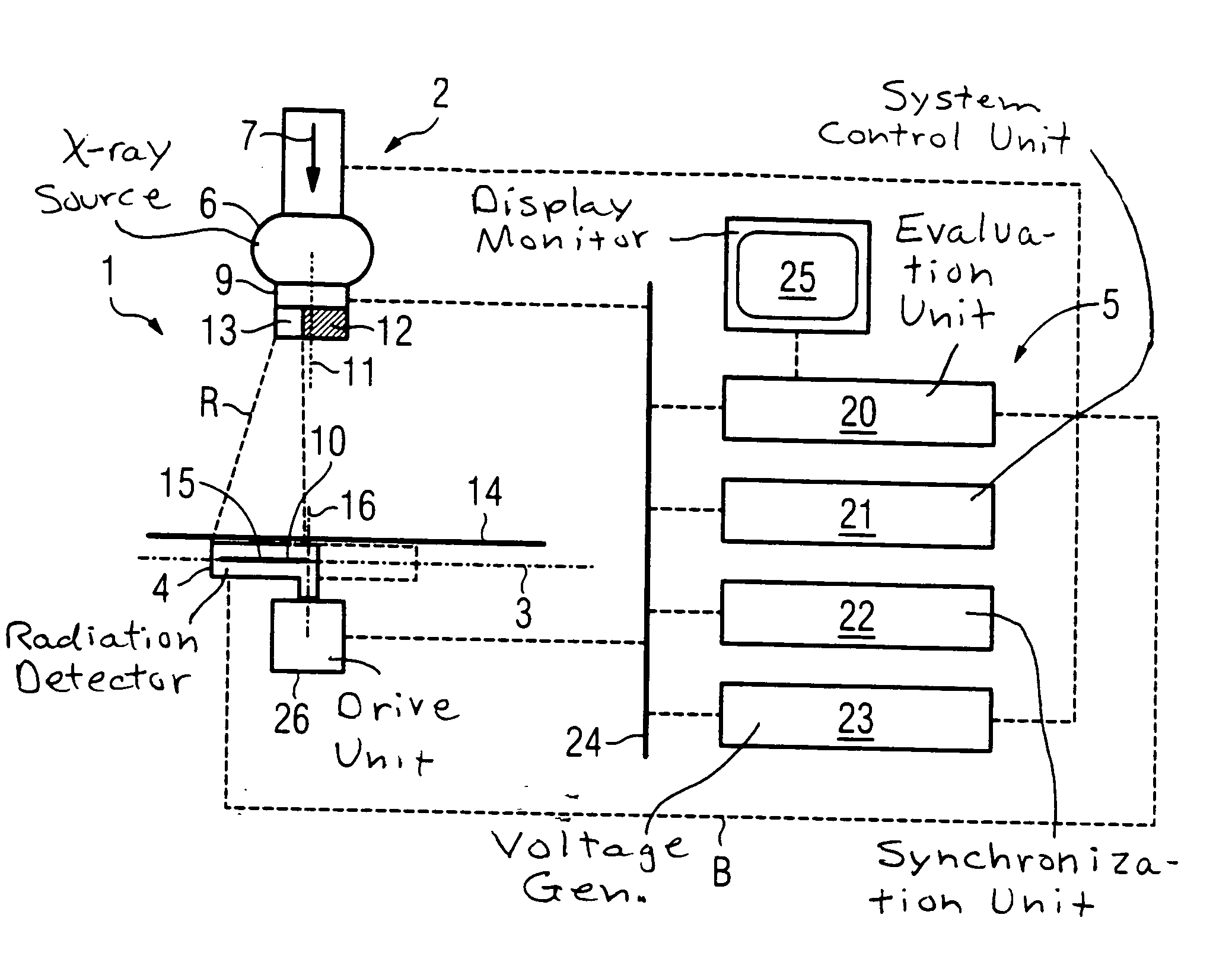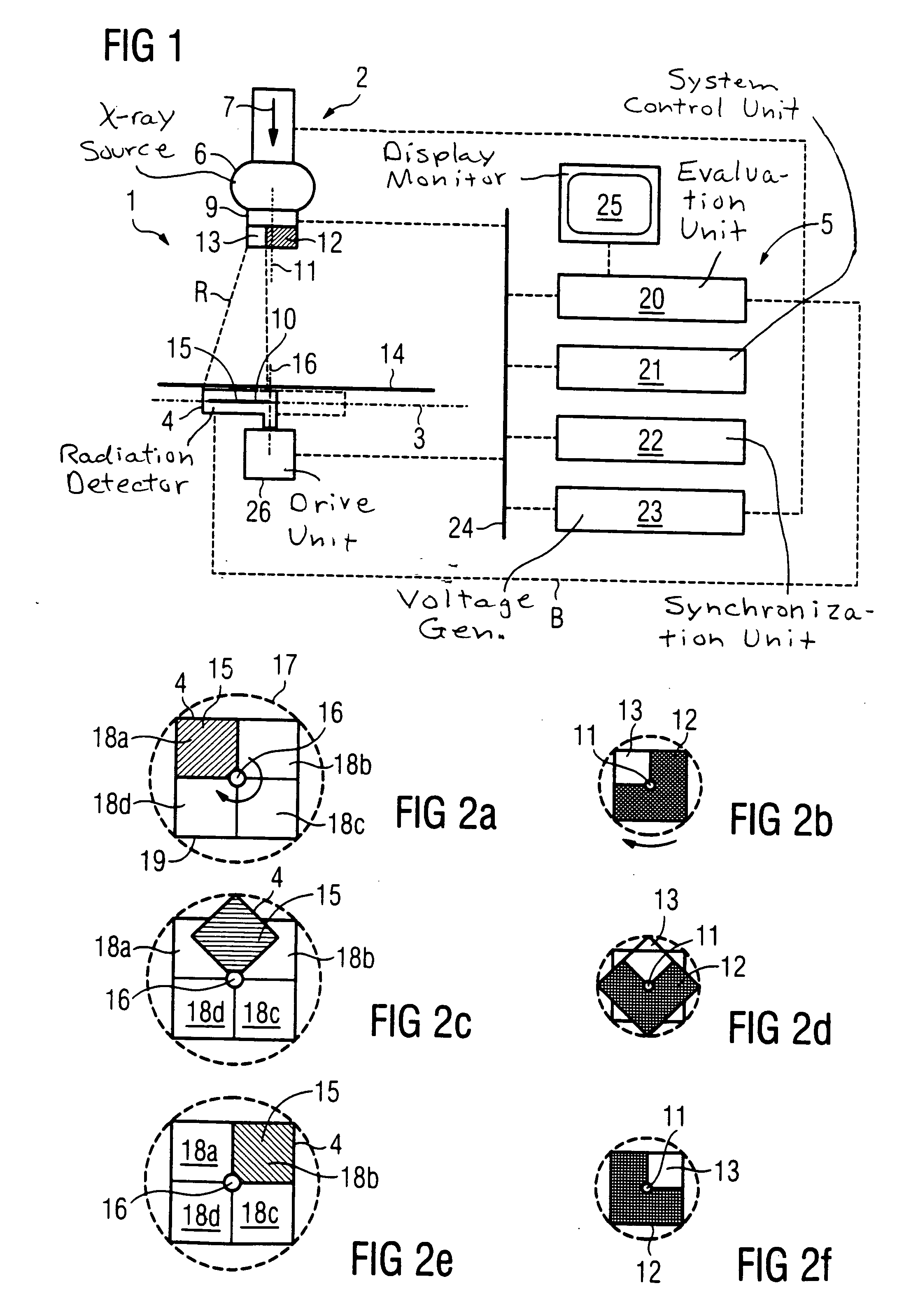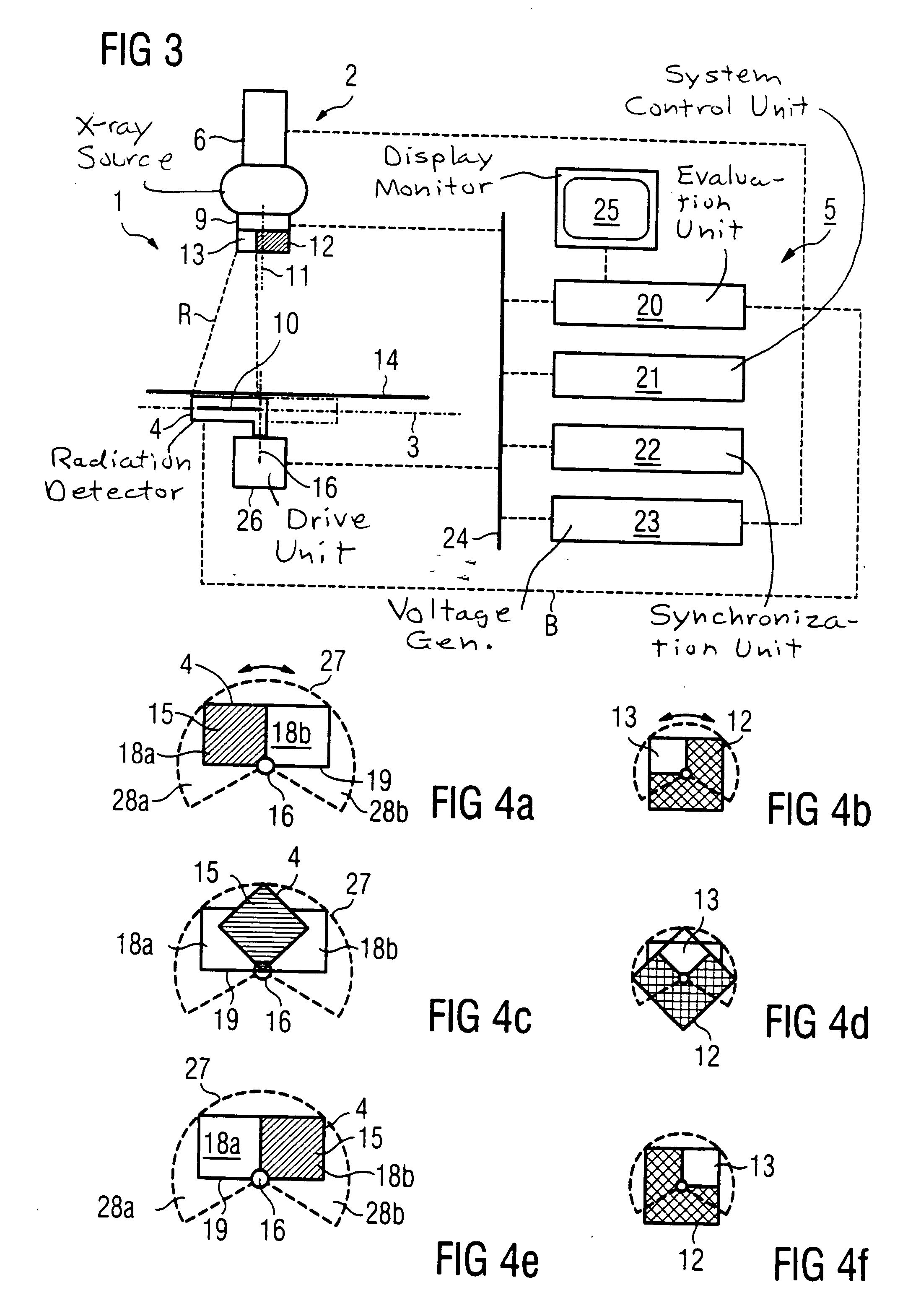X-ray imaging apparatus with continuous, periodic movement of the radiation detector in the exposure plane
a radiation detector and x-ray imaging technology, applied in the field of x-ray equipment, can solve the problems of insufficient medical applications, insufficient manufacturing of large-format semiconductor substrates, and inability to meet the requirements of large-scale semiconductor substrates, and achieve the effect of rapid exposure of comparatively large x-ray images
- Summary
- Abstract
- Description
- Claims
- Application Information
AI Technical Summary
Benefits of technology
Problems solved by technology
Method used
Image
Examples
Embodiment Construction
[0032]FIG. 1 shows an X-ray apparatus 1 having an exposure unit 2, an X-ray detector 4 situated in an exposure plane 3, and a control and evaluation system 5.
[0033] The exposure unit 2 includes an X-ray source 6 for producing a beam of X-ray radiation R. In the direction 7 of the radiation, a diaphragm system 9 is connected downstream from the X-ray source 6. In the diaphragm system 9, a portion of the X-ray radiation R is selected that strikes an exposure plane 3 within a predetermined surface segment 10. As a result, the surface segment 10 is exposed by the X-ray radiation R. The remaining X-ray radiation R produced by X-ray source 6 is absorbed by the diaphragm system 9 in order to avoid undesirable scatter radiation. The area of exposure plane 3 situated outside surface segment 10 is thus largely blocked from the X-ray radiation R.
[0034] The diaphragm system 9 includes a diaphragm 12 that can be rotated around an axis of rotation 11, and that has a diaphragm aperture 13 that i...
PUM
| Property | Measurement | Unit |
|---|---|---|
| angle of rotation | aaaaa | aaaaa |
| size | aaaaa | aaaaa |
| digital imaging techniques | aaaaa | aaaaa |
Abstract
Description
Claims
Application Information
 Login to View More
Login to View More - R&D
- Intellectual Property
- Life Sciences
- Materials
- Tech Scout
- Unparalleled Data Quality
- Higher Quality Content
- 60% Fewer Hallucinations
Browse by: Latest US Patents, China's latest patents, Technical Efficacy Thesaurus, Application Domain, Technology Topic, Popular Technical Reports.
© 2025 PatSnap. All rights reserved.Legal|Privacy policy|Modern Slavery Act Transparency Statement|Sitemap|About US| Contact US: help@patsnap.com



